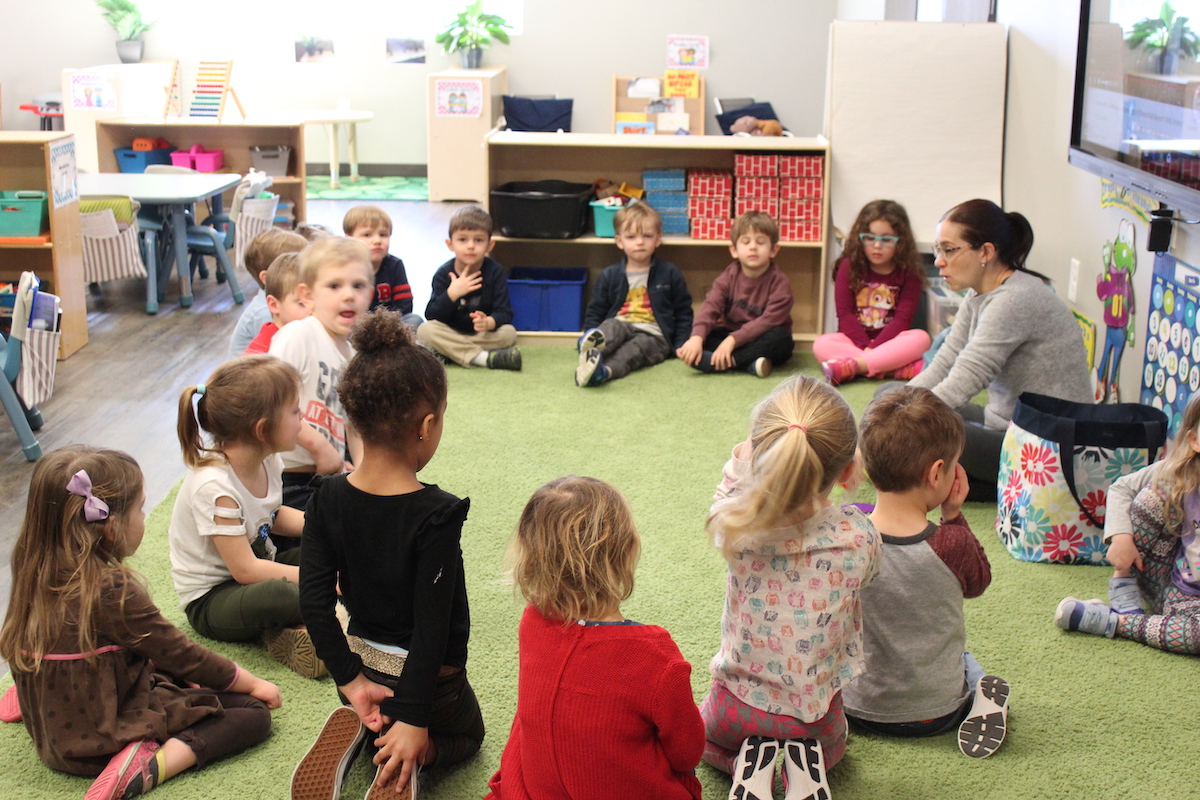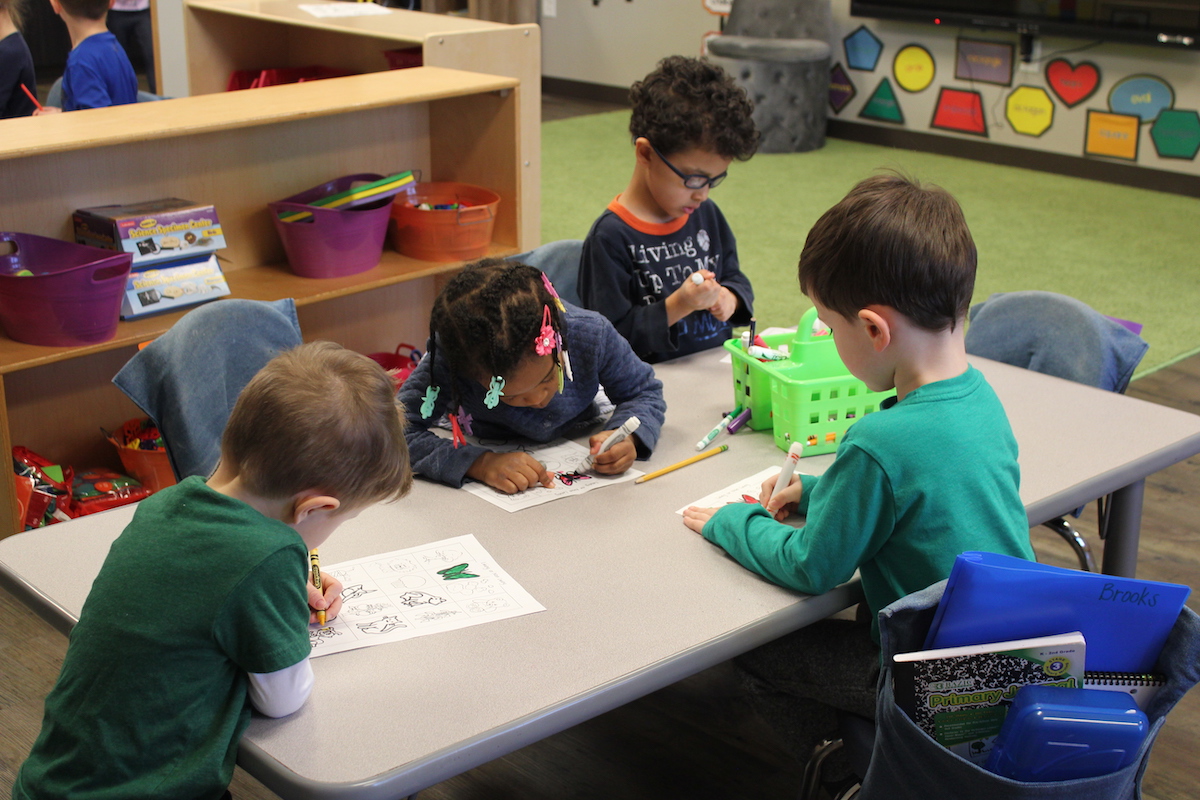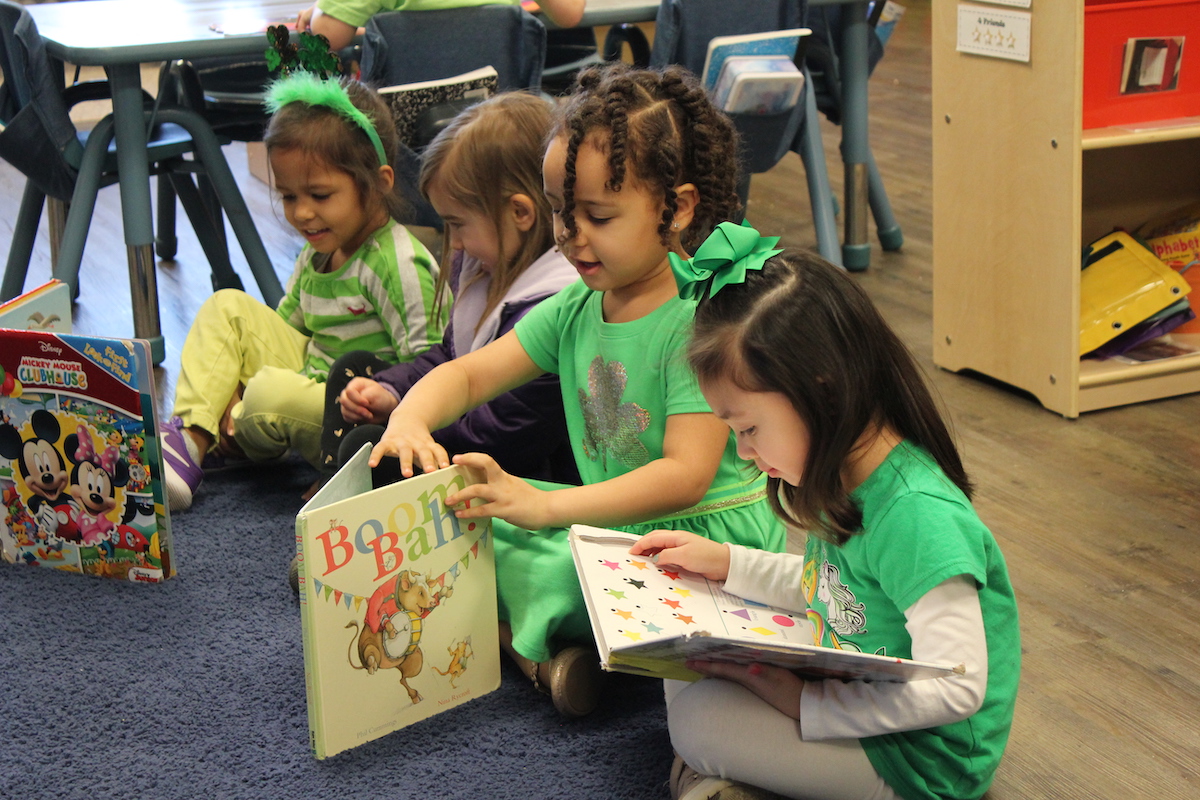JUNIOR KINDERGARTEN
FIVE YEAR OLD'S AFTER AUGUST 1st
KINDERGARTEN
FIVE YEAR OLD'S BEFORE AUGUST 1st
JUNIOR KINDERGARTEN AGES:
- If your five year old turns five after August 1st, he/she will be in Junior Kindergarten.
- Individualized academic plans for each student created to challenge each student individually
KINDERGARTEN AGES:
- If your five year old turns five before August 1st, he/she will be in Kindergarten.
- Individualized academic plans for each student created to challenge each student individually
CLASS TIMES:
- All Junior Kindergarten and Kindergarten classes are 5 days a week, all day and classes start at 8:30AM.
LITERACY
In order for students to be proficient readers, they must be able to decode, read fluently, determine text importance, talk about reading, write about reading, interpret text and reflect on text importance.
In order for students to be proficient writers, they have to be able to use the writing process to produce writing pieces, effectively use conventions and grammar to communicate, have authentic audiences, spell proficiently, celebrate successful writing.
- A strong foundation in phonological awareness
- Knowledge of the alphabet
- Knowledge of print and its uses
- Building comprehension and responding to books and other texts
- Building foundational writing skills
MATH
In order for students to be mathematicians, they have to have conceptual understanding of concepts, be strategic problem solvers, build on foundational skills, have automaticity of math facts.
- Building number concepts and operations
- Exploring and describing spatial relationships and shapes
- Comparing and measuring
- Knowledge of patterns
- Problem solving, reasoning, and flexible thinking skills
- Building math communication skills
SOCIAL-EMOTIONAL
In order for students to be problem solvers and contributors in society, they need to have safe opportunities to fail, be given opportunities to create and explore without rigid guideline or expectations, be able to collaborate and negotiate with others who think differently than they do, be able to peacefully resolve conflict, use digital tools with responsibility, and build social skills through play.
- Regulates own emotions and behaviors
- Establishes and sustains positive relationships
- Participates cooperatively and constructively in group situations
PHYSICAL
- Gross motor development
- Fine motor strength and coordination
LANGUAGE
- Listening skills and understanding of increasingly complex language
- Using language to express thoughts and needs
- Using appropriate conversational and other communication skills
- Learning Spanish
COGNITIVE
- A positive approach to learning
- Remembering and connecting experiences
- Classifying information
- Using symbols and images to represent something not present
SCIENCE AND TECHNOLOGY
In order for students to be scientists, they have to be able to investigate, observe, explore and be curious about the world around them. They have to understand the science behind the investigations, observations, explorations and curiosity. The have to be able to write in scientific ways.
- Using scientific inquiry skills
- Knowledge of the characteristics of living things
- Knowledge of the physical properties of objects and materials
- Knowledge of Earth’s environment
- Using tools and technology to perform tasks
SOCIAL STUDIES
In order for students to be responsible citizens, they need to have knowledge of the United States, understand current events and issues in our community and country, be problem solvers, understand our country and world’s history and the impact it has on our society.
- Knowledge of self
- Showing understanding of people and how they live
- Exploring change related to people or places
- Geographic Knowledge
THE ARTS
- Exploring the visual arts
- Exploring musical concepts and expression
- Exploring dance and movement concepts
- Exploring drama through actions and language





